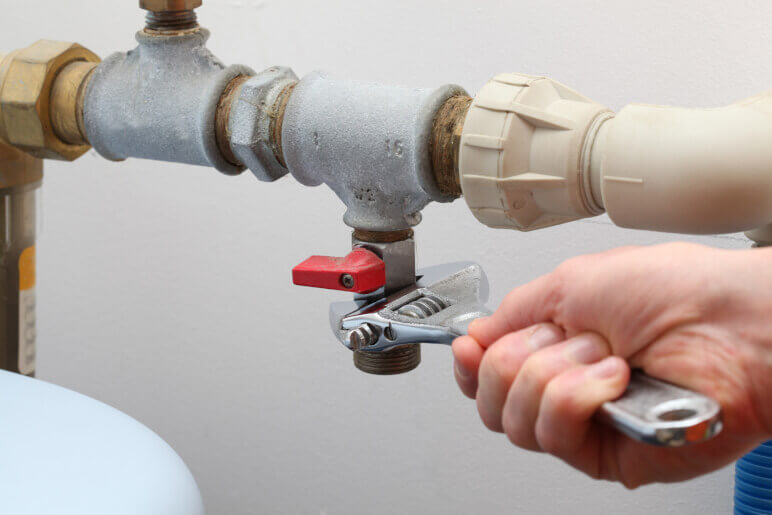A New Homeowner's Guide to Effective Bathroom Plumbing Management
A New Homeowner's Guide to Effective Bathroom Plumbing Management
Blog Article
What're your ideas about 6 Essential Plumbing Checks for New Homeowners?

For brand-new house owners, understanding and preserving shower room pipes can conserve both money and time by avoiding pricey problems down the line. Right here are some necessary washroom plumbing ideas to assist you keep every little thing running smoothly.
Prepare for Winter
Protect your pipelines from freezing throughout winter by protecting pipelines in unheated areas like cellars, attics, and garages. During severe chilly, allow cold water drip from faucets offered by revealed pipes to aid stop freezing.
Arrange Normal Upkeep
Take into consideration organizing annual evaluations with a certified plumbing technician. They can detect issues that you might miss out on, such as concealed leaks or wear and tear on pipelines and fixtures. Routine upkeep helps prolong the life of your plumbing system and can stop emergency situations.
Acquaint Yourself with the Key Shut-Off Valve
Understanding where the main water shut-off valve lies in your house is crucial. This allows you to promptly turn off the water supply in case of major leaks or during plumbing emergencies, protecting against considerable water damage.
Regularly Check for Leakages
Small leakages can cause huge issues. Routinely inspect under sinks, around toilets, and near pipes fixtures for any indicators of leaks. Try to find dampness, small drips, or rust. Capturing and fixing leakages early can stop extra major damage and conserve water.
Preserve Your Water Heater
Guarantee your water heater is set to an appropriate temperature level (generally around 120 degrees Fahrenheit) to avoid scalding and lower energy use. Flush the tank each year to eliminate sediment build-up, which can reduce the performance and life expectancy of your heater.
Update Your Components
If your home has older fixtures, think about updating to much more reliable versions. Modern toilets, showerheads, and taps are made to use less water while providing good pressure, which can considerably minimize your water costs and ecological impact.
Be Cautious with Do It Yourself Pipes Repair Works
While it's appealing to deal with all home repairs on your own, be cautious with plumbing. Some issues might call for professional know-how, particularly if they involve main water lines or drain repairs. Employing a specialist can sometimes be much more cost-efficient than do it yourself, particularly if it stops additional damage.
Do Not Ignore Slow Drains Pipes
If your sink or tub is draining slowly, it's typically a sign of an obstruction forming. Addressing this very early can stop a full blockage. Use a bettor or a plumbing's snake to remove particles. Avoid using chemical drain cleansers as they can harm your pipes in time.
Know What Not to Flush
Toilets are not garbage disposals. Stay clear of purging anything besides toilet paper and human waste. Things like wipes, womanly hygiene items, and cotton swabs should be dealt with in the garbage to avoid obstructions and drain back-ups.
Install Strainers in Drains
Place strainers in your sink and tub drains pipes to capture hair and other particles before they enter your plumbing system. Cleansing the filters on a regular basis will aid stop accumulation and keep water flowing freely.
Conclusion
Comprehending and maintaining your home's washroom plumbing can protect against many common concerns. By following these crucial suggestions, you can ensure your bathroom continues to be practical and efficient, conserving you time and money in the future.
Essential Plumbing Tips for Homeowners: Keep Your Pipes Flowing Smoothly
As a homeowner, understanding the basics of your plumbing system can save you time, money, and a lot of headaches. Plumbing issues can range from minor annoyances like dripping faucets to major problems like burst pipes that cause significant damage. This guide provides essential tips to help you maintain your plumbing system and tackle common issues.
Understanding Your Plumbing System
Supply System: Brings fresh water into your home from a municipal source or a well. Drain-Waste-Vent System: Removes wastewater and vents sewer gases outside. Fixtures and Appliances: Includes sinks, toilets, showers, dishwashers, and washing machines. Basic Maintenance Tips
Regular Inspections: Periodically check for leaks, corrosion, and other signs of wear and tear. Look under sinks, around toilets, and near water heaters. Know Your Main Shut-Off Valve: In case of a major leak, you’ll need to shut off the water quickly. Ensure everyone in your household knows where the main shut-off valve is located. Prevent Frozen Pipes: In cold climates, insulate exposed pipes and let faucets drip during extreme cold to prevent freezing. Use Strainers: Install strainers in sinks and tubs to catch hair, food particles, and other debris that can cause clogs. Common Plumbing Issues and Solutions
Clogged Drains:
Prevention: Avoid pouring grease down the drain and use drain screens to catch debris. DIY Fix: Use a plunger or a plumbing snake to clear minor clogs. For stubborn clogs, a mixture of baking soda and vinegar can sometimes help. Leaky Faucets:
Prevention: Replace washers and seals regularly. DIY Fix: Turn off the water supply, disassemble the faucet, and replace worn parts.

Request Free Estimate Report this page